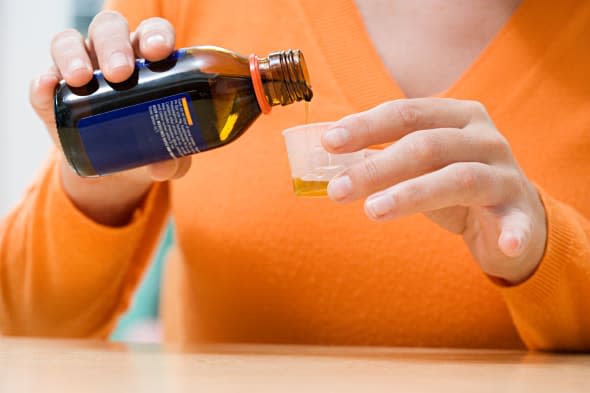Cough medicines 'a waste of money'

Over-the-counter cough medicines are a waste of money, a senior doctor has warned.
Around one in five people suffers from a cough each winter, lasting an average of 18 days. And we often deal with this by running straight off to the chemist: according to the Proprietary Association of Great Britain, the UK bought 942 million packs of over-the-counter medicines last year, spending £444 million on cough medicines alone.
But Dr Tim Ballard, vice chair of the Royal College of General Practitioners, says there's little evidence to suggest that they have any effect.
"The medical evidence behind cough medicines is weak and there is no evidence to say that they will reduce the duration of illnesses – as such, GPs are unlikely to prescribe them," he says.
He added: "If the cough lasts longer [than three weeks] and is affecting young infants, or is associated with coughing up blood, shortness of breath, confusion, or high fever, then they should contact their GP practice, although a face-to-face appointment might not be necessary."
Article continues below

Dr Ballard's statement backs up the advice given by the NHS Choices website, which advises people to take the simpler and cheaper option of making their own remedy out of lemon and honey.
"There's little evidence to suggest cough medicines actually work, although some ingredients may help treat symptoms associated with a cough, such as a blocked nose or fever," it says.
"There's no quick way of getting rid of a cough caused by a viral infection. It will usually clear up after your immune system has fought off the virus."
Cough medicines tend to fall into three types. Cough suppressants are aimed at preventing dry, tickly coughs, and use ingredients such as pholcodine, dextromethorphan and codeine, which work on the brain to suppress the cough. Expectorants such as guaifenesin and ipecacuanha are designed to loosen sticky mucus so that people can cough it up. And syrups tend to rely on glycerine to coat and soothe the throat.
So how can you make your own? The US National Honey Board has a recipe devised by a nurse. Pop the zest of two lemons and a quarter of a cup of peeled, sliced ginger (or half a teaspoon of dried ginger) in a pan with a cup of water. Simmer for five minutes and drain, before adding the liquid to a cup of warmed honey and stirring until the mixture thickens. Take a teaspoon or two every four hours - but remember that honey isn't suitable for babies under the age of one.
Read more money-saving tips on AOL Money:
20 money-saving tips from grandparents
10 ways to keep your house warm for less
TVs left on standby 'cost £80 a year'



